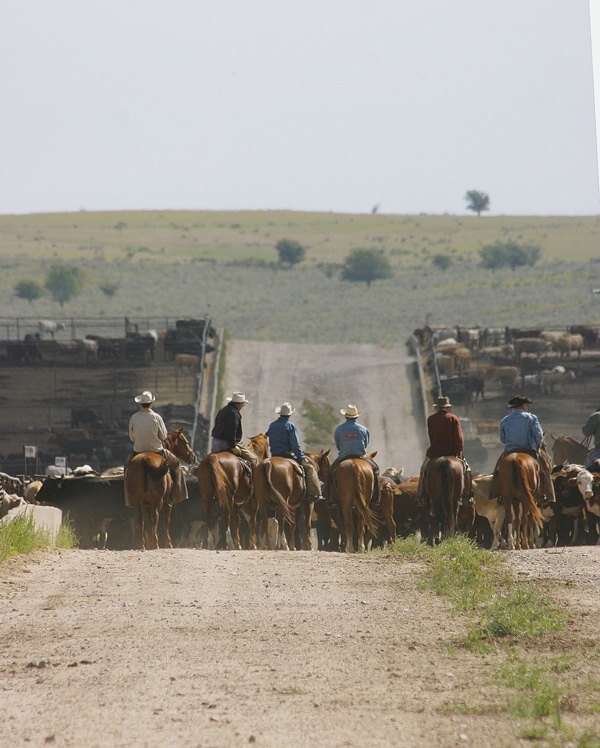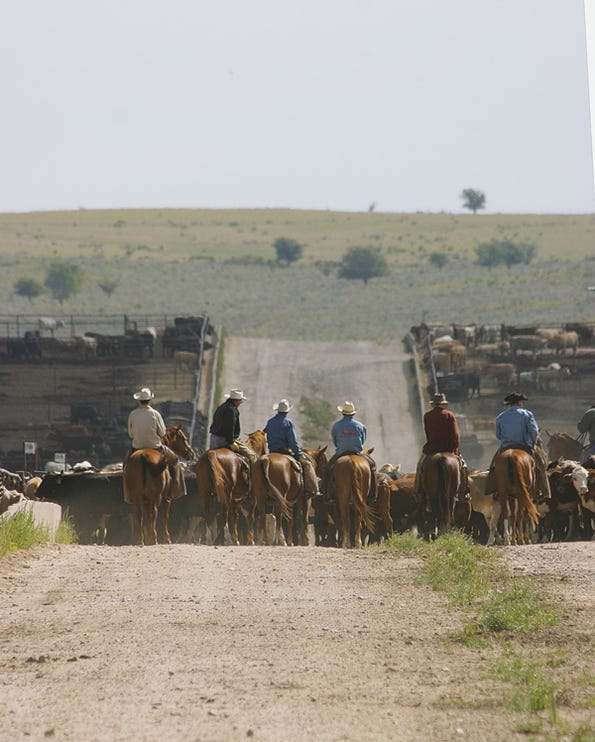Learn To Manage Work Stress
Running a feedyard is stressful. But stress can be managed, even in the toughest of times.


Running a feedyard is stressful. Always has been. But the last few years have taken on a particularly grim patina as a whirlwind of factors have come to confluence in ways that challenge managers and owners like never before.
And that ratchets up an already stressful job that seems to get one click tighter with every market report that lights up the monitor. But there are ways to deal with it, both for the people who sit in the hot seat and those they supervise and manage.
“First of all, it’s important to evaluate what is causing the stress,” says Carolyn Rodenberg, a Lynchburg, VA, consultant with Alternatives to Conflict, LLC, who helps feedyards understand and minimize workplace stress and conflict. “Sometimes we think it’s one thing and it’s really another.”
For example, you might think the problem is you’re overly tired from lack of sleep. “While that may be the symptom,” she says, “the real stressor may be that there’s tension the minute you walk in the door.”
So first, evaluate what’s causing your stress. For a lot of people, that’s best done one of two ways – talk it out or write it down.
Controlling the controllable
If your stress is coming from things you or your supervisors can control, perhaps it’s time to huddle and call a different play.
“I’m a firm believer in collaborative problem solving,” Rodenberg says. “You literally have to have the people involved around a table, talking about things. Just talking about it is the best stress reducer there is.”
She has found that often just being able to vent in a safe environment will bring the stress level down considerably. “It’s when it’s inside, when we keep pushing it down, that’s when the frustration builds and all this stress starts really taking over our persona.”
Remember that old saying, “I know that you believe you understand what you think I said, but I’m not sure you realize that what you heard is not what I meant?” Often, Rodenberg says, the root of much of the stress in daily feedyard management is simply a breakdown in communication. One way to overcome that situation is to train employees to restate what they just heard.
For example, the cattle manager tells the cowboys to empty several pens. The cowboys respond, “What we hear you saying is you want lots 21 and 25, but leave 24 alone.” Then the cattle manager can clarify the communication. “No, I want lots 21 through 25.”
Controlling the uncontrollable
Much of a manager’s stress comes from things he can’t control – markets, weather, etc. That’s when you have to compartmentalize, Rodenberg says.
“Visually think about it as you drive up to your workplace – ‘Okay, I’m going to put this away in a box and not think about it until I finish my day’s work.’” And vice versa. “When you walk out the door at work, you say, ‘I’m going to put this in a box until tomorrow morning and leave it at the workplace.’”
Easy enough. But what if it won’t go into the box, or the lid won’t stay on? The corn market took a big jump. Live cattle futures took a dive. Your spouse was upset this morning and you left for work with the problem unresolved. What if one of the kids is sick or a family member is going through a divorce?
“We just have to learn and practice,” she says. “Do a lot of self talk. I really believe in self talk because I think we can persuade ourselves better than anyone else can persuade us. So you practice mentally putting that stuff in a box.”
Then you practice it every day. “And if you mess up, and we all do, then you have to say ‘Yesterday I blew it. But I’m starting fresh today.’”
Setting the example
Training and coaching employees, not just in how to do their job but how to handle their job, is important, says Thomas Sewell, transportation manager for Hitch Enterprises in Guymon, OK. A well-trained employee has the skills and confidence to do the job well. When that’s reinforced with praise when deserved, and constructive criticism when needed, managers can reduce workplace stress.
For Sewell, that begins at the top. “I try not to put too much pressure on myself, because my stress goes on to the employees.” He accomplishes that by not taking workplace events personally. “Just stay calm. Try not to worry about the small things and just deal with it. You can only get so much done during a day.”
But, sometimes things get in the way of that approach. “Then you’ve just got to back off a bit and accept that these things happen. Deal with it and go on,” Sewell adds.
He coaches his employees to handle stress the same way. They’re dealing with animals that can be unpredictable, and trucks and equipment that can break down. “Problems arise that are unexpected, and having to deal with it at all hours of the day – that’s probably the most stressful,” he says.
“So basically, I tell them to deal with their stress the same way I deal with it – there’s only so much we can do. These problems arise and we’ll deal with it.”
However, he thinks one of the best stress-relieving techniques he uses with his employees is to treat them as adults and show them the respect they deserve.
“If I respect them, they won’t stress out near as bad. Praise them whenever they deserve praise; that lets them know they’re doing a good job so they won’t be stressed whenever they’re trying to perform. Challenge them and criticize them, but make it helpful criticism so they learn from it,” Sewell says.
That modeling is critical, Roden-berg adds. “You can use good techniques to hire folks, and you can train them. But if leadership and upper management aren’t modeling it, it’s absolutely worthless.”
When she works with a feedyard, she starts with the owners and manager. “Because if they’re not going to use stress-management techniques, how in the world can they expect anyone they supervise or manage to use them?”
Rodenberg says she only makes two guarantees when counseling feedyards – “If you talk about it, it will get better. If you don’t talk about it, I guarantee it will get worse.”
To that end, she says, the most important stress management tool is to not stuff it inside. That eventually leads to health problems like heart disease and high blood pressure, and will ultimately come out in a vesuvian event that will solve nothing and create much, all of it bad.
And look inward. “We bring a lot of stress on ourselves. We’re quick to point our finger and say: ‘It’s because they work me too hard, because I don’t have enough equipment, because we’re short-handed.’ But I believe a lot of our stress is self-induced. So we have to look at ourselves and ask if we’re expecting too much of ourselves.”
About the Author(s)
You May Also Like


.png?width=300&auto=webp&quality=80&disable=upscale)
